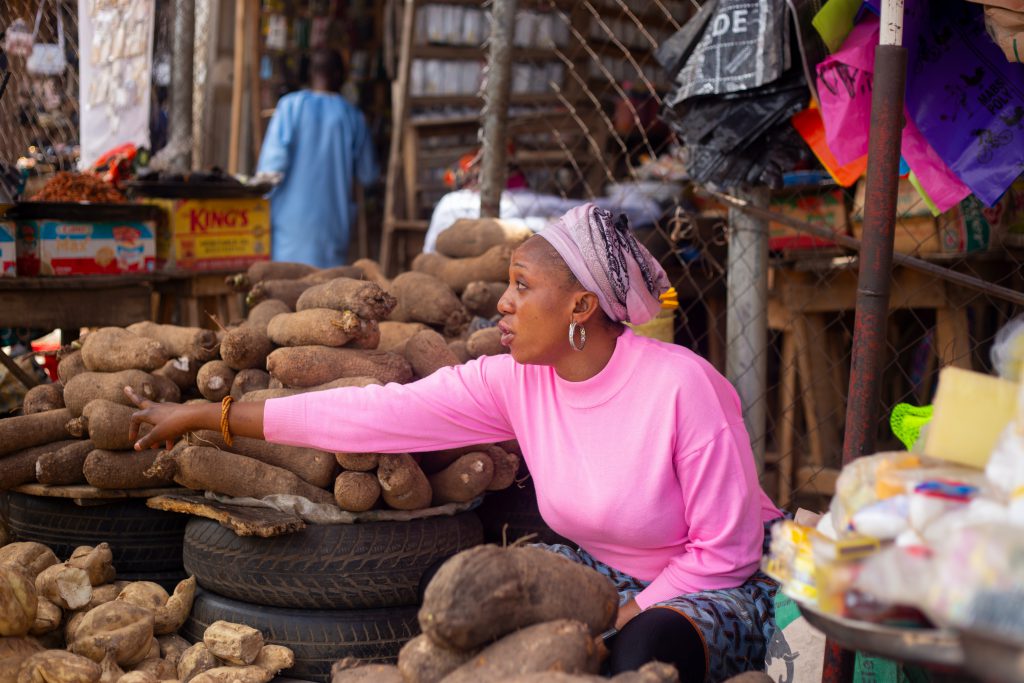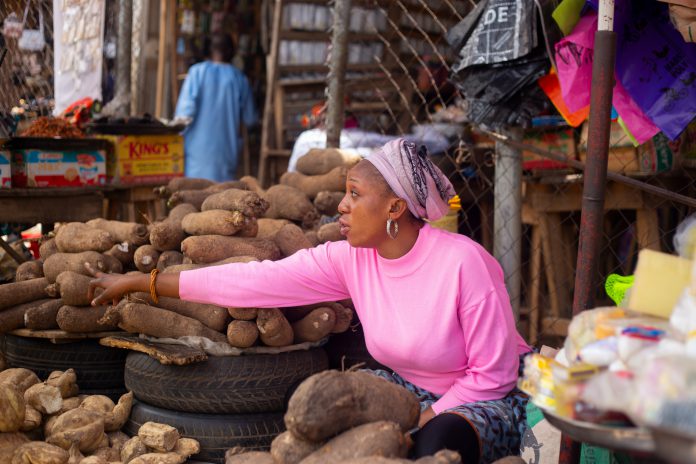Most Nigerians are searching for the most advantageous means of sustenance because Japa did not work out. While it’s hilarious, it’s also pitiful how low we’ve sunk as a nation. We cannot entirely be faulted for seeking out the cheapest ways to live in the country. To live and survive in Nigeria is a great feat. Although a majority of people might start asking ‘how bad is the Nigerian economy‘ Look around.
The steep decline in the country’s revenues for starters is enough to make anyone hyperventilate. Undue reliance on borrowing, exchange rate devaluation, deficit infrastructures, unemployment, etc. Coupled with the harsh reality that half the population is below the poverty threshold. Listen, the Nigerian economy is after our lives!.
In simpler terms, it’s increasingly difficult to maintain certain standards of living that one is used to in Nigeria. All those small luxuries people can afford themselves and their families now have exorbitant price tags attached to them. For instance, the items people normally get for ₦50 are now ₦500 or more. These absurd hikes in prices never cease. And whatever goes up, also never comes down—an insult to Sir Newton’s postulation about gravity.
Why We Look For Cheap Ways To Live
Hear us out; there are no jobs too, except you create new ones. Entrepreneurship is the last resort for the unemployed or underpaid white-collar peeps. Once people start earning higher, with hopes of changing their financial status, the purchasing power cripples. It also appears the government doesn’t care, which leads Nigerians to the conclusion that they’re getting a lot of mileage out of the entire situation. Hence, the massive rate of relocation abroad—Japa. Even though the situation abroad isn’t entirely rosy, but to Nigerians, it’s the lesser of two evils.

There are inexhaustible reasons people opt for cheaper means of livelihood. The above-mentioned are just a fraction of what is. Everyone is aware of this. Unless you’ve been out of touch with current events, which is extremely unlikely because almost everyone is dealt the same hand in this country. Or maybe you just flew in from Yankee after having spent decades there, then we can make exceptions, but even though!. Surely you watch the news or hear from people back home. Right?.
Nigerians are very resilient people and can thrive regardless of the situation they find themselves in. The ability to cleverly come up with solutions to pressing challenges is deeply inherent in them. Anytime inflation rocks the economy, they have stand-by solutions or alternative ways of handling their problems, much like shock absorbers. What are the economic situations facing Nigeria if not a complete shock?.
So what is the cheapest way to live in a country where the economic situation is this dreadful?. There are many ways of living inexpensively in Nigeria and these may vary individually. We’ll delve into some salient and helpful tips you’ll need to stay afloat in the meantime, until when your Japa clicks. Before that, let’s have a look at what dissolves most of our finances.
What Do People Spend Most Of Their Money On?

Nigerians typically spend most of their monies on housing, food, fees, healthcare, fuel, clothing, and other utilities. Including chop life which is a must. Even though the average Nigerian doesn’t earn enough to cover housing, much less to chop life or enjoy. Yet they do this regadless.
There are several things to consider when looking for the cheapest ways to live. First, you need to properly analyze the mechanics of spending your finance to understand what takes the biggest bite out of it. While the government might be partly responsible for the many failures of the Nigerian economy, most of the time, the financial woes are self-induced.
What Is The Cheapest Way To Live In Nigeria Currently?

1. Tight Budget
Start by going on a seriously tight budget and planning toward your expenses. One of the cheapest ways to live and survive in Nigeria is to go on a strict budget. The steeper the economy, the tighter people should make their belts to cut back on irrelevant expenses. Ditching some of the superfluous lifestyles is a great way of cutting back on expenditures. Some of the unnecessary expenses to cut back on include expensive meals at luxury restaurants, high-end gadgets, extravagant leisure trips, irrelevant subscriptions, etc. When you’re financially disciplined, you become conscious and cautious of your spending habits.
2. Multiple Streams Of Income
You’ve probably heard Nigerians using the phrase ‘multiple streams of income’ to admonish one another to earn from different sources. Some 9-5ers are overdependent on their salaries without having hedges in form of extra income. One of the current financial realities in Nigeria is that the more you earn, the more prices of things spiral out of control. So, having just a single source of income won’t do it for you during a recession.
3. Migrate To Cheaper Places
At least if you can’t relocate abroad, you have the option of migrating to less expensive places. In this context, less expensive doesn’t signify areas concentrated with poverty. No, far from it. The stress that comes with living in low-income neighborhoods is usually not worth it. In most cases, these low-income areas are more ridiculously expensive than high-brow areas. There are cheaper places in Nigeria to live comfortably, save, or plan for the future. You just have to find them.
4. Go Back Home
This is usually one of the cheapest ways to live in Nigeria. Move back home to your family or loved ones to steer clear of the exorbitant prices of rented houses, food, transportation, etc. Especially those living in big cities like Abuja, Lagos, etc. Depending on what home means to you, the term is subjective. You can also move in with a friend, relative, or acquaintance to reduce the cost of the rent.
5. Save More
As radical as this might sound, it’s one of the cheapest ways to live and stay afloat during inflation or financial crisis. After cutting back on several pointless expenditures, saving money always comes in handy in the future. Try to invest too while you save to make profitable returns. There are various Nigerian savings and investment platforms to choose from.



